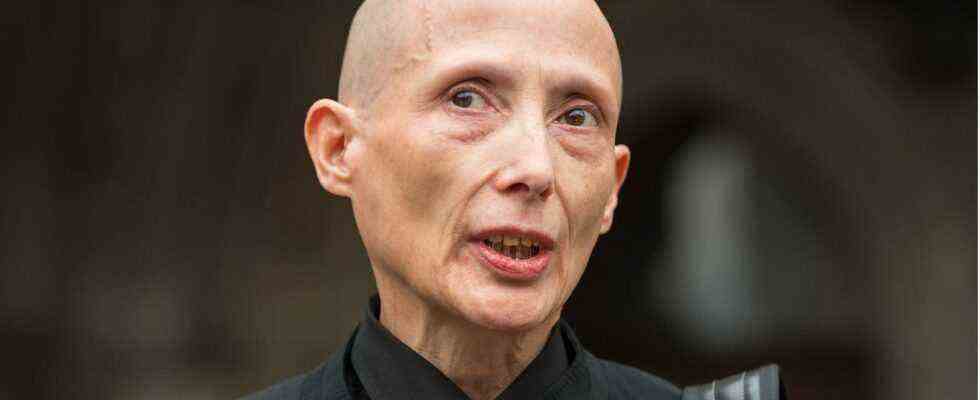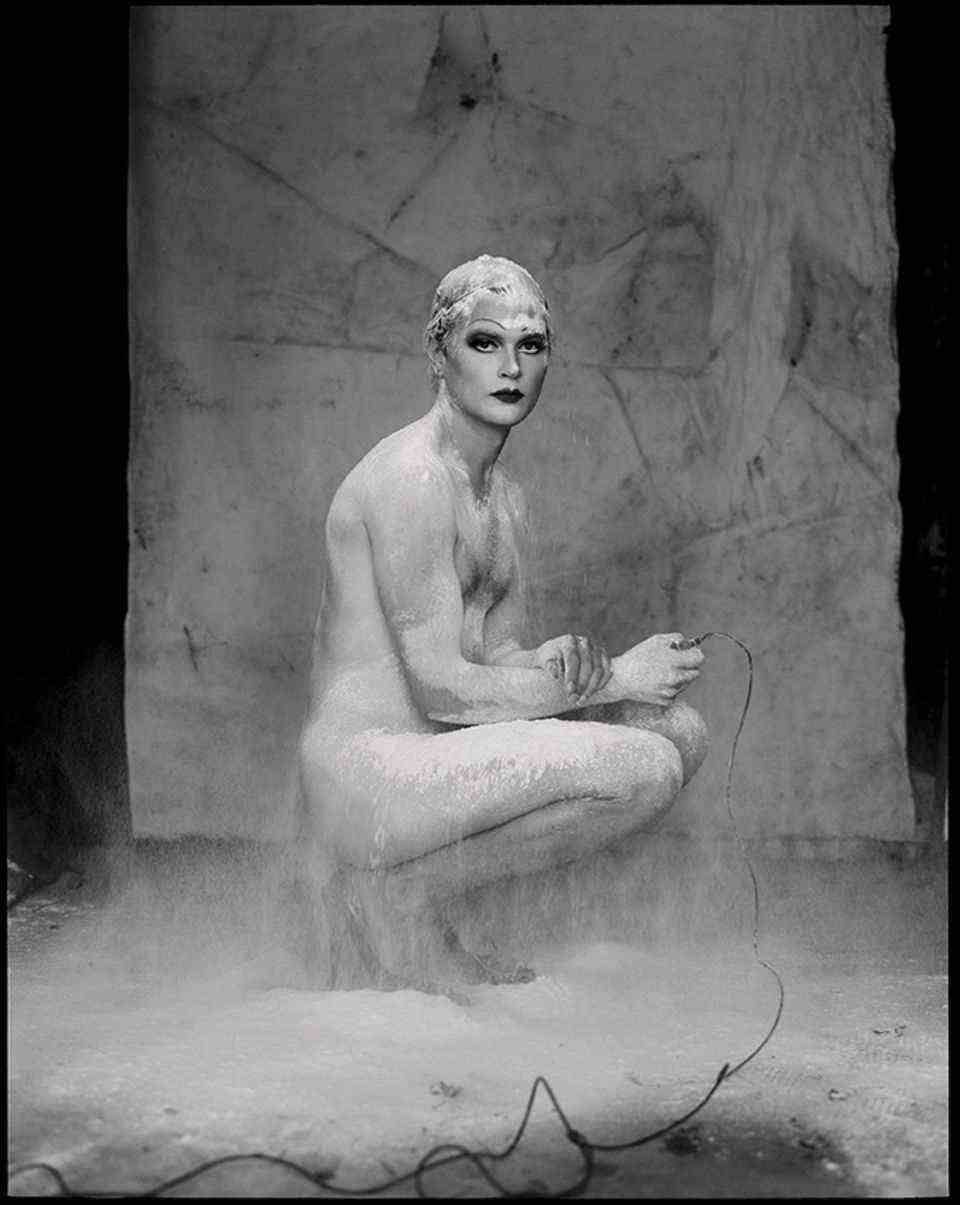interview
gender activism
Christie Elan-Cane fights for an “X” in the passport: “It’s dehumanizing to have to tick male or female”
Christie Elan-Cane is fighting for an “X” in her passport in Great Britain
© Dominic Lipinski / Picture Alliance
Male or female, these two options have so far existed in the UK passport. Christie Elan-Cane cannot fit into these categories and is fighting for an “X” in the passport. For almost three decades.
The old year ended in defeat for Christie Elan-Cane. The UK Supreme Court dismissed Elan-Cane’s appeal in mid-December. “X” is not an option. Elan-Cane demands a neutral gender in the passport, but lost a corresponding case against the British government in March 2020. Other countries already offer this option. In Germany, the civil status has been “diverse” since 2018. According to the organization Employers Network for Equality and Inclusion, “divers” or “X” can be entered in the passport in at least twelve countries, including Denmark, Argentina, Canada, the USA, India and Pakistan.
Despite the recent defeat, per won’t give up – per is the pronoun Christie Elan-Cane uses instead of he or she. It derives from the English “person”. star spoke to Elan-Cane about the decades-long struggle for recognition, which began as a lonely one.
Christie Elan-Cane, what’s your hope for this new year?
The full legal recognition of people who do not fit into the categories male or female.
In December, the Supreme Court dismissed her complaint. What did that trigger in you?
To be honest, I was shocked by this verdict. I was angry. It shows a lack of understanding of the case. A number of countries show that it is possible to introduce an “X” in the passport.
They have announced that they will take the case to the European Court of Human Rights in Strasbourg. How do you rate your chances there?
My team and I are confident. But we simply don’t know. So far, such cases have been resolved at the national level. It would be the first case of this kind in Strasbourg.
What does an “X” in the passport mean to you?
It is a blatant misinterpretation when I have to indicate male or female in documents. The passport determines my identity. It’s dehumanizing to have to tick male or female.
They were born girls. When did you know you were in the wrong body?
As teenagers. But it took a long time until my transition. That was a long process for me.
In your early 30s you had your breasts and uterus removed.
I was 31 at my first surgery, a mastectomy, and 33 at my second, a hysterectomy. Some will no longer understand this radical step today. At the time, however, there seemed to be no alternative. Times were different.
Was there a phase in this process when you thought you would want to live as a man from now on?
No never. I knew I was in the wrong body. But I also knew that I didn’t want to be a man.
How did those around you react to your step back then?
Understanding. I didn’t want anything to do with anyone who didn’t do it anyway. That still applies today. I notice it already in the salutation. I use per as a pronoun. Some ask me how I would like to be addressed, others I point this out in conversation. Anyone who reacts without understanding here will never really respect me.
You spoke publicly about your transition in an interview with the BBC in the early 1990s. Looking back, how was that experience for you?
In retrospect, that was naive. A BBC producer wanted to speak to a person who lives androgynously. At that time I spent a lot of time with a group of trans people, that’s how the contact came about. I thought after the interview everyone knew about me and that it would be a good way of coming out, especially for work. But it wasn’t. i lost my job I was working in marketing at the time. I didn’t want to have contact with customers. After that I wrote many, many applications, but nothing worked. In the end, all I could do was activism.
You started your fight almost three decades ago – a different time. How alone did you feel back then?
In the beginning very. There was no social media. At some point I knew of just three people worldwide who, like me, define themselves as non-gendered.
What have you drawn strength from over the years?
I have someone by my side who supports me a lot. In the meantime, I have also received support from many others. And I am driven by the injustices that still exist.
First the British government, then the Supreme Court, spoke out against an “X” in the passport. How do you perceive the mood in the country: would the population be open to it?
Yes I think so. I experience a lot of openness and encouragement. Unfortunately there is also a growing anti-trans movement in the UK and the UK government seems to support it. I believe that if the government changed, my chances would increase as well.
In which areas do you think something needs to change besides the passport?
In some. With insurance companies, for example, it should also be possible to tick something other than male or female. Or at banks. When my bank switched to online banking, I wasn’t able to use it at first because I would have had to tick male or female here too. Finally, the bank introduced a third option. My work made a difference here. We also need gender-neutral toilets. There is definitely still a lot to do.


